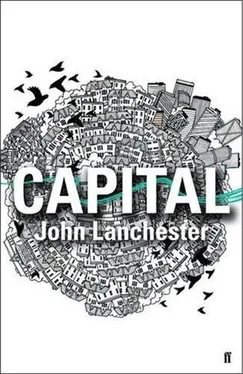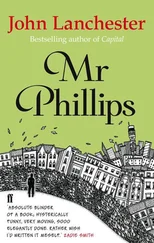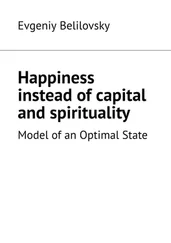Fiona Strauss stayed for an hour and when she left, she took something out of her handbag and handed it to Shahid, wrapped in a piece of silk: his copy of the Qur’an.
From that moment on, Shahid’s time in custody divided into two. The first part of it was formless and blurred and, afterwards, he couldn’t remember how it was partitioned into days, or the sequence of what happened before what, or anything to give it shape or order. He had specific memories – the diarrhoea, the time he spilled tea on himself, the inedible fish fingers which were so hard he could have used them to drum on the table, the time all four interrogators had had a go at him – but the overall way in which the time had passed now seemed vague and dreamlike. Then Fiona Strauss had come, and time had shape again. He waited for contact with her, looked forward to it, and his days were now oriented around specific events. It was the weirdest thing.
Now, too, he had his Qur’an. It was wrapped in the gold and green silk shawl that his father had given him over twenty years ago, unannounced, for no reason, just coming home from work and pressing it into his hands. Shahid was not, and never would claim to have been, devout – even when he had been off on his adventures it had been more out of a feeling of solidarity, of brotherhood in the umma , than of pure religious feeling in and of itself. He was an OK Muslim in a B-minus kind of way. He wasn’t going to claim that he had suddenly turned into a devout believer, but the day after Fiona Strauss came he prayed five times, after asking the guard who brought him his breakfast the direction to Mecca – and the policeman had instantly told him, as if he had known all along and been expecting to be asked. Shahid learned something: it turned out that there was a huge difference between washing your hands in the nasty metal sink because there was nowhere else to do it, and washing them in the sink because you chose to do so as part of the ablutions before prayer. The space in the cell, as demarcated in Shahid’s head, changed. It was now his space and he chose to use it to pray in. He had for the first time since his arrest a feeling that he was not just someone who was acted on, passive, done-unto; he could decide what to make of what was happening to him. In his own head, he was free.
Facing his interrogators that day, going over the yet-again questions, Shahid felt different. He felt that it was his questioners who were trapped, who were bound within the narrow circuits of their own suspicions. All they could do was repeat themselves; he was more at liberty than they were. It was almost funny. They had a script that they had to stick to. He was alone – alone in front of Allah – but free. They were all in it together, and they had no choices of their own to make.
Brotherhood in religion had always been an easy emotion for Shahid to locate. This was more elusive, but it had always been this more difficult feeling that Shahid had liked best about Islam: the aloneness before God. Not the imam, not the rest of the umma , but you standing on your own before Allah. No one to mediate the contact. Shahid felt that more purely than he ever had before: the contrast between the human world of institutions and the awful singleness of Allah. On the one hand, Formica table tops, policemen and their questions, plastic cutlery on a shatter-proof plastic tray, rules and human smallness all around; on the other, nothing but you, on your own before the infinite. The religion Shahid had grown up in never reached more deeply into him than when he caught this feeling, the exhilarating bleakness of the desert faith. I am here for a maximum of twenty-eight days, he told himself; after that they have to charge me, and there’s nothing they can possibly charge me with. OK, so Iqbal was up to something. Maybe he wasn’t organised enough to be up to the thing they were accusing him of. But he was up to something. And OK, Iqbal had been staying at his flat. But no British jury would send him to jail for that, so there was no prospect he would be charged with a crime. And even if he were, because he was innocent, and because he was alone before Allah, he didn’t care what happened. No, that wasn’t right: he did care, he cared deeply. But there was a part of him where the events, the what-happened-next, did not reach. A part of him apart.
If Shahid had known, there would have been another source of comfort close to hand. The policemen interrogating him did not agree about whether he should be there at all.
Iqbal Rashid had been a person of interest to the security services for some time. He was an associate of Brussels-based radicals who had trained in Afghanistan and who were known to have dealings with Al Qaeda groups in Pakistan. When he first came into Britain he was not subject to close monitoring by MI5 and Special Branch, but they had an eye kept on him, as part of the general penumbra of concern around Al Qaeda affiliates and wannabes. Then police in Belgium intercepted a plot to blow up a bomb and sink a cross-Channel ferry, and because the people involved in that were known associates of Iqbal Rashid, the level of attention given to him was raised. He was subjected first to a raised level of surveillance for two weeks, to see what, if anything, he was up to. During that two weeks he had contact with a number of persons of interest to MI5 and it was decided to make the watch on him permanent while he was in the UK. It was around this point that Iqbal got in touch with Shahid, who was at first completely unknown to the security services. When they looked into his case they found that he had been to Chechnya and had there met people who went on to train in Al Qaeda camps. They began monitoring both Shahid and Iqbal and it became clear that the Belgian was involved in something that was either a sinister and sophisticated plot, at a late stage, to blow up an important piece of infrastructure, thought to be the Channel Tunnel – or it was just a whole load of loose, blabbermouthy talk by angry young idiots showing off to each other. The normal procedure would be to wait until someone actually did something overtly terrorist in intention, and then to arrest all the conspirators; this was the historic preference of the British police, as opposed to the American bias, greatly intensified in the wake of 9/11, to thwart plots by arresting their members at an early stage. But British juries were showing a reluctance to convict people arrested on the basis of these early-stage, putative plots, so the police were strongly minded to stick with their method of arresting as late as possible. Then someone linked to the group had been seized trying to buy Semtex in the Czech Republic and the security services had been faced with the choice of waiting to see what the plotters did next, or stepping in and seeking convictions with the evidence they had. After debating the point, and reluctantly, they had decided to go ahead with the arrests after Iqbal Rashid had left Shahid’s flat and disappeared; and it was as a result of this that Shahid now found himself in a cell at Paddington Green Police Station.
Iqbal’s involvement in the plot, if there actually was one, was clear. Shahid’s wasn’t, at all, and the only evidence against him was the internet use at his flat during the period Iqbal had been staying with him. Jihadi websites had been visited, and encrypted emails exchanged – the encrypted emails being a fingerprint-clear proof of something amiss, since no one without a dark purpose would bother with the necessary weapons-strength secrecy. It seemed entirely obvious to some of the security services – Amir the Asian interrogator, and Clarke the tired heavy Special Branch man among them – that Shahid had nothing to do with whatever was being planned and that he was at worst a kind of useful idiot, willing to give shelter and accommodation to a man he knew was up to no good. To some others, including the MI5 officers who had been in charge of the initial surveillance, nobody could be that naive. His semi-jihadi past combined with his association with the terrorist Iqbal made it self-evident that he was a central member of the plot, and if there was little direct evidence that was nothing more than a sign that he was careful – in other words, the absence of evidence was an important and sinister piece of evidence.
Читать дальше












